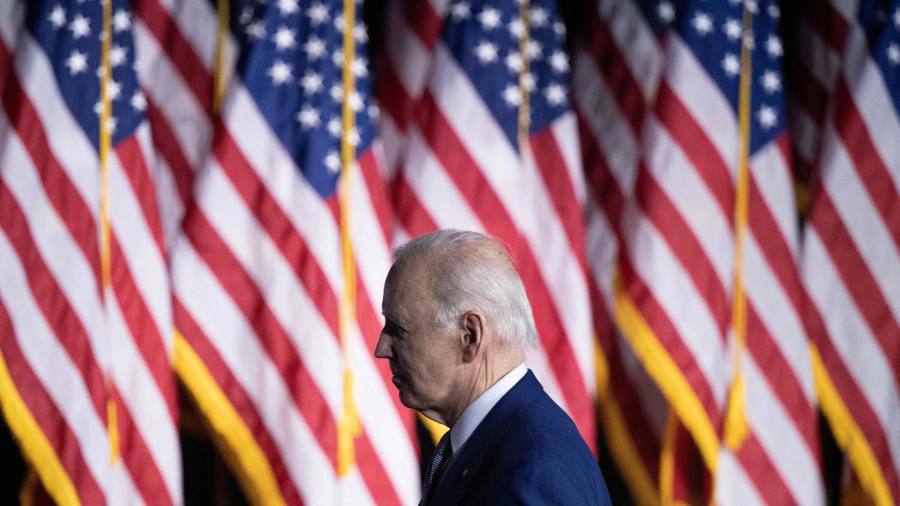The shape of a possible US debt ceiling agreement between the White House and Republicans in Congress is emerging as they intensify talks in a bid to avoid an unprecedented national default.
People familiar with the matter said that the issues on the table in the talks had narrowed, as senior Biden administration officials and aides to Republican Speaker of the House Kevin McCarthy prepare to hold new discussions this weekend.
At the heart of any deal would be a pact to limit domestic spending. Republicans are demanding deep cuts to many government programmes over 10 years, while the White House wants to see more modest curbs over two years, one person familiar with the talks said.
President Joe Biden has signalled he is open to applying savings from unspent Covid relief funds to any agreement, which could help narrow the differences between the sides.
Another element of a possible deal is legislation to speed up the permit process for big investment projects. That legislation has been championed by West Virginia senator Joe Manchin, a centrist Democrat, and is backed by the White House and supported in different forms by Republicans.
The White House has rejected Republican calls for the repeal of clean energy tax credits that were part of the Inflation Reduction Act, Biden’s signature legislation last year, and their calls to scrap student debt relief measures implemented by the president.
Democrats are also opposed to a Republican demand for work requirements to be applied to anti-poverty and social safety net programmes in areas such as healthcare and nutrition, which could be a big sticking point, the person familiar with the talks said.
The negotiators are operating in a toxic political climate averse to compromise and on a short deadline: the US could default on its debt as early as next month if no deal is reached.
Any agreement is unlikely to be concluded before Biden’s attendance at the G7 summit in Hiroshima next week, but it could plausibly be in place after that, the person said.
At a briefing with reporters on Friday, Karine Jean-Pierre, the White House press secretary, expressed some optimism. “It’s been productive. It’s been continuing,” she said. “The conversations are going in the right direction.”
But Republicans have been more downbeat and sceptical. “Republicans are focused on the tenets of the only bill to pass a body of Congress that raises the debt limit, avoids default and enacts spending reforms,” one Republican aide said, referring to legislation passed by the House last month that raised the debt limit but tied it to deep budget cuts.
McCarthy has chided the Biden administration for moving too slowly, claiming the White House had “no plan, no proposed savings and no clue”. Jean-Pierre rebutted that charge on Friday.
“Obviously, there’s a lot of urgency,” she said. “We’re talking about potentially millions of jobs being threatened because of what House Republicans are doing.”
Business groups are closely following the talks as corporate America becomes increasingly alarmed at the prospect of default and pushes for a deal. Some corporate leaders insist it remains within reach.
“It doesn’t feel like any of [the issues] are impossible to resolve and that really puts you on a path to get a deal,” said Neil Bradley, chief policy officer at the US Chamber of Commerce, the largest business lobby group.
Bradley sent a memo to member companies on Friday laying out what a compromise might look like. “I think there is a desire on both sides to get to a successful lifting of the debt limit and to get a deal. I continue to believe that the biggest danger is simply a miscalculation,” told the Financial Times.
For Democrats, the priority is to make sure they do not sacrifice any of their big policy accomplishments of the past two years, or are forced to accept a level of austerity that would stunt the economy.
They also want to maintain the principle that debt limit negotiations should be kept separate from spending talks, even if they happen on two parallel tracks.
McCarthy will have to extract significant concessions from the White House to win enough Republican backing without jeopardising his speakership. That task became harder this week after former president Donald Trump urged him to hold the line.
Read the full article here
